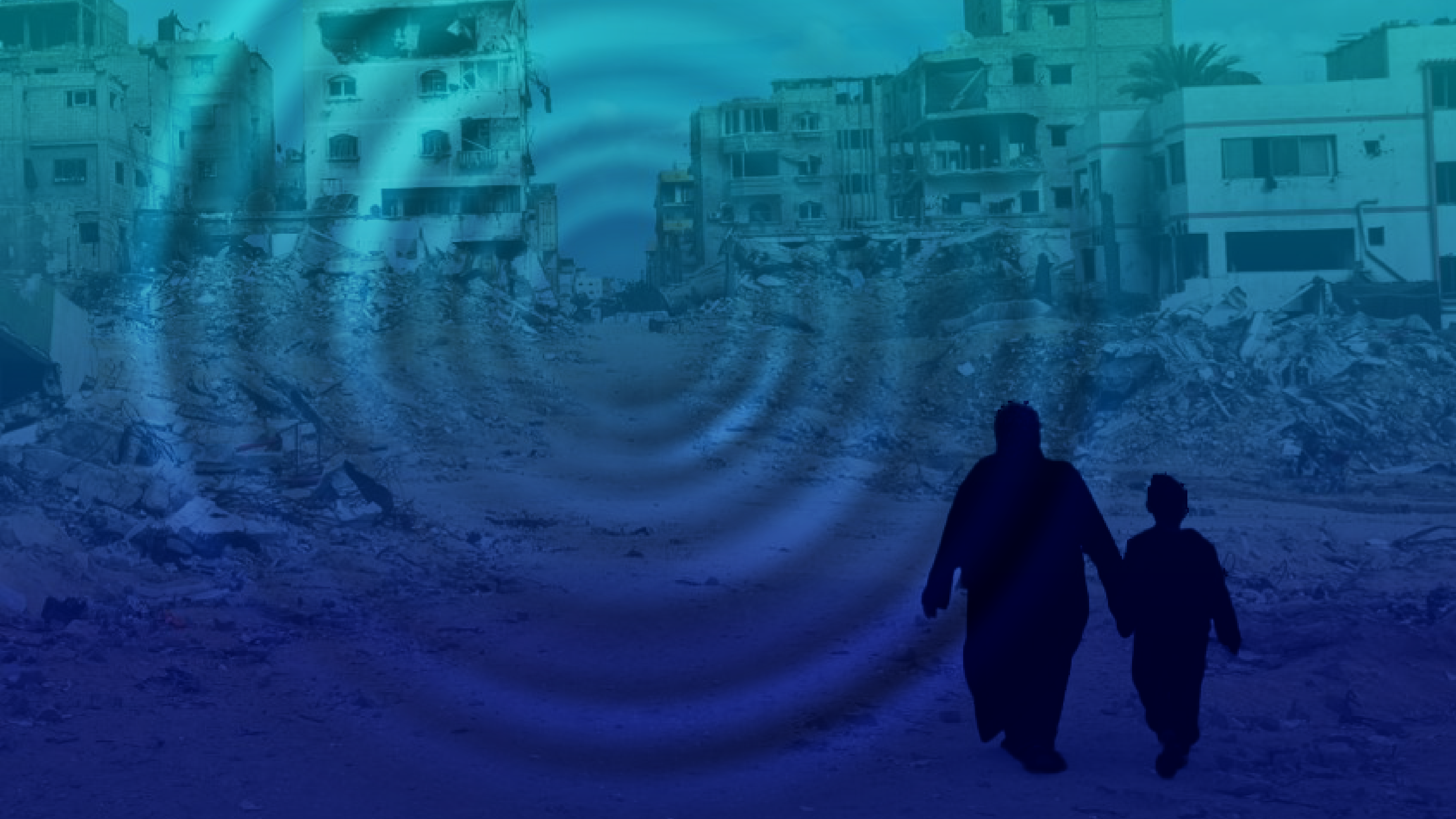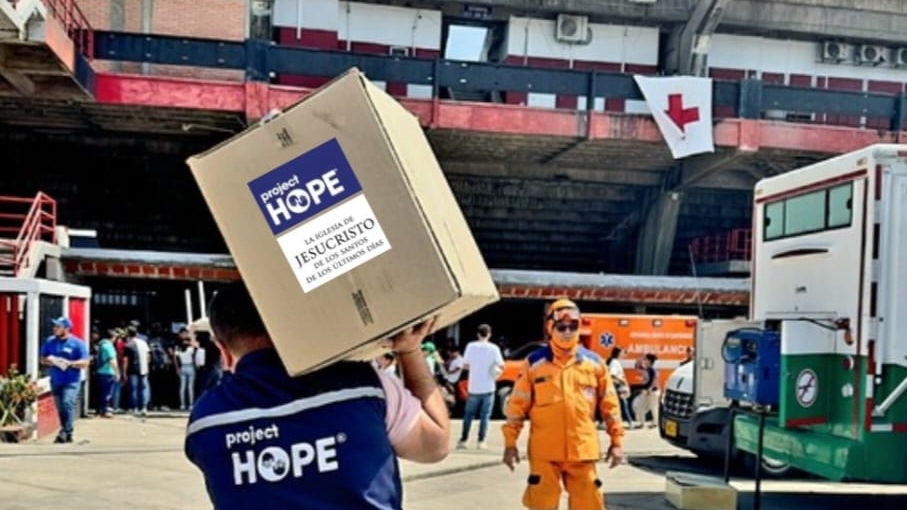What Would Gender Equity Look Like Around the World?
For International Women’s Day, we asked Project HOPE team members to share some of the greatest challenges facing women where they work, and how Project HOPE is making a difference in shaping a safer and more equitable world.
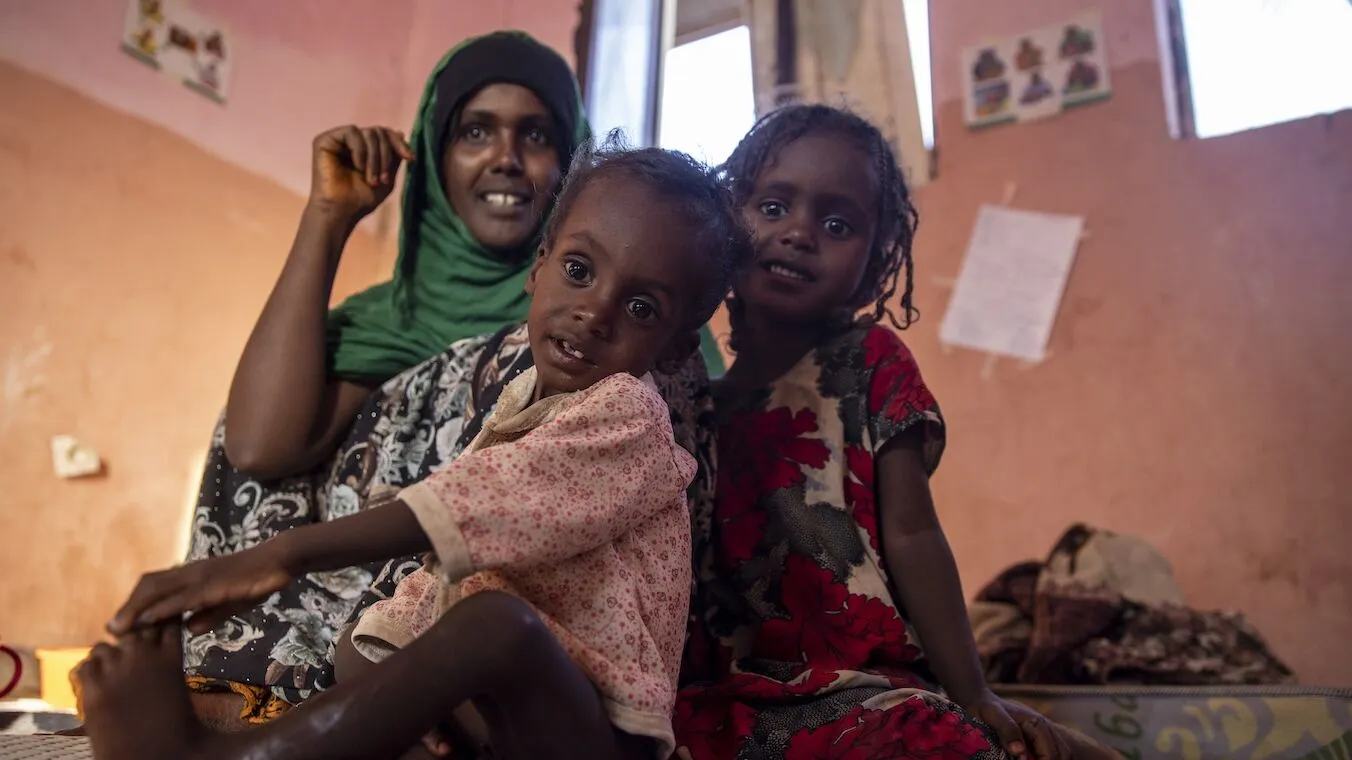
International Women’s Day is a chance to celebrate the achievements and contributions of the women we work for and beside. But we also acknowledge the challenges stacked against them and are pushing to continue accelerating work toward a gender equal world, where every woman, everywhere, can access the care, services, and opportunities needed to thrive.
To understand what that looks like, we asked Project HOPE team members around the world to share some of the greatest challenges facing women where they live, what equity would mean, and how our teams are helping to make a difference. Read on to learn more.
Tiwonge Tracy Moyo
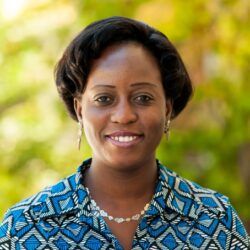
Country Representative, Malawi
Why did you decide to work in the humanitarian sector?
My inspiration came from wanting to make a difference for people living in rural areas across Malawi. I have always been motivated by innovations that have the potential to transform people’s lives—especially women, children, the elderly, and families living in extreme poverty.
I believe that building the capacity of health and social workers would bring lasting change for communities across the country, particularly the most vulnerable groups like adolescent girls and young women who are highly vulnerable to contracting diseases like HIV. I am inspired by work that helps these groups increase their health and well-being and thrive in education and business.
What are some of the greatest challenges facing women in Malawi right now?
There are many challenges women face in this part of Africa. Access to quality education at primary and secondary schools is a challenge due to various factors including poor sanitation facilities, access to reading materials, access to science laboratories, and inadequate numbers of teachers.
There are few opportunities for women to be given important decision-making positions and the support needed to be successful.
Access to quality health services is also a challenge, particularly for maternal and neonatal child health services, HIV, TB, reproductive health, and family planning. There is also limited availability of social services for vulnerable households.
What would equity look like for women in Malawi?
Starting in preschool and primary school, girls would be given equal opportunities to access early childhood development activities, and then pursue secondary and tertiary level education with no cultural or social norms to discourage them from achieving their career dreams.
Achieving gender equity will mean women are given opportunities based on merit and are able to fairly compete for decision-making positions in government offices, executive positions, legislatures, judiciary roles, corporations, non-governmental organizations, and parastatals, and that they are supported in achieving meaningful results for these institutions.
How is Project HOPE making a difference?
Project HOPE is supporting governments to build the capacity of health workers and local organizations to sustainably support populations in accessing health services. We also support vulnerable groups like adolescent girls and young women so that they can thrive in their lives.
Betelehem Negatu
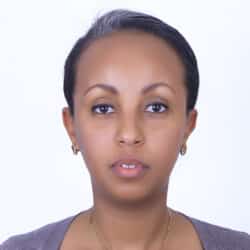
Regional Human Resources Officer, Ethiopia
Why did you decide to work in the humanitarian sector?
As a fresh graduate, I got an unexpected opportunity to join a well-known U.S.-based International Non-Governmental Organization (INGO) for a short contract, which turned into 13 years of professional and personal growth. Even though I stumbled upon the opportunity to join the humanitarian sector, I ended up being highly attached to the wonderful, passionate, and dedicated humanitarian professionals I worked with, and I’ve been a firsthand witness to the results that we have achieved over the years.
What are some of the greatest challenges facing women in Ethiopia right now?
It starts in girlhood. A young girl lacks the equal opportunity to go to primary school, which is supposed to be her right. She’s also likely to get married at a very early age, which shatters her chances of getting the education she needs and forces her to become a wife and mother without choice.
For those few who had the opportunity to go to primary school, the next hurdle is high school. It becomes very difficult for girls to go to high school, as the nearest school could be in the next village, and it’s very risky for them to walk that far each day without proper protection.
For the few who manage to finish high school, there is another big challenge, which is going to college. All universities are very far away from their villages, and most families don’t feel comfortable sending their daughters away to study. If a young woman manages to get past this challenge, then she must face the challenges of the university environment, which includes a lack of access to clean water for sanitation, unaffordable feminine hygiene products, and sexual harassment—both from their teachers as well as from fellow students. Rape, sexual abuse, sexual harassment, and physical abuse are some of the challenges most women face, irrespective of where they are from.
What would equity look like for women in Ethiopia?
Women are not seen as equals to men. For the most part, career opportunities and scholarships are passed on to male counterparts rather than female professionals. In recent years, this issue and many more challenges that women are facing have been identified and several movements have been initiated to alleviate them.
How is Project HOPE making a difference?
As an organization, Project HOPE has put a system in place to ensure that women are given equal opportunities during recruitments, promotions, training, and development. In addition to offering equitable salary during recruitment, women professionals are given high-level positions within the organization. However, we still need to continue attracting and retaining qualified female professionals.
In Ethiopia, we are saving the lives of women and children through various activities. We have an emergency mobile health and nutrition unit that gives support to women and children who have been displaced. We also had a grant from Boeing that helped us provide safe water and build latrines for the community, as well as provide female sanitary products and sex education at schools.
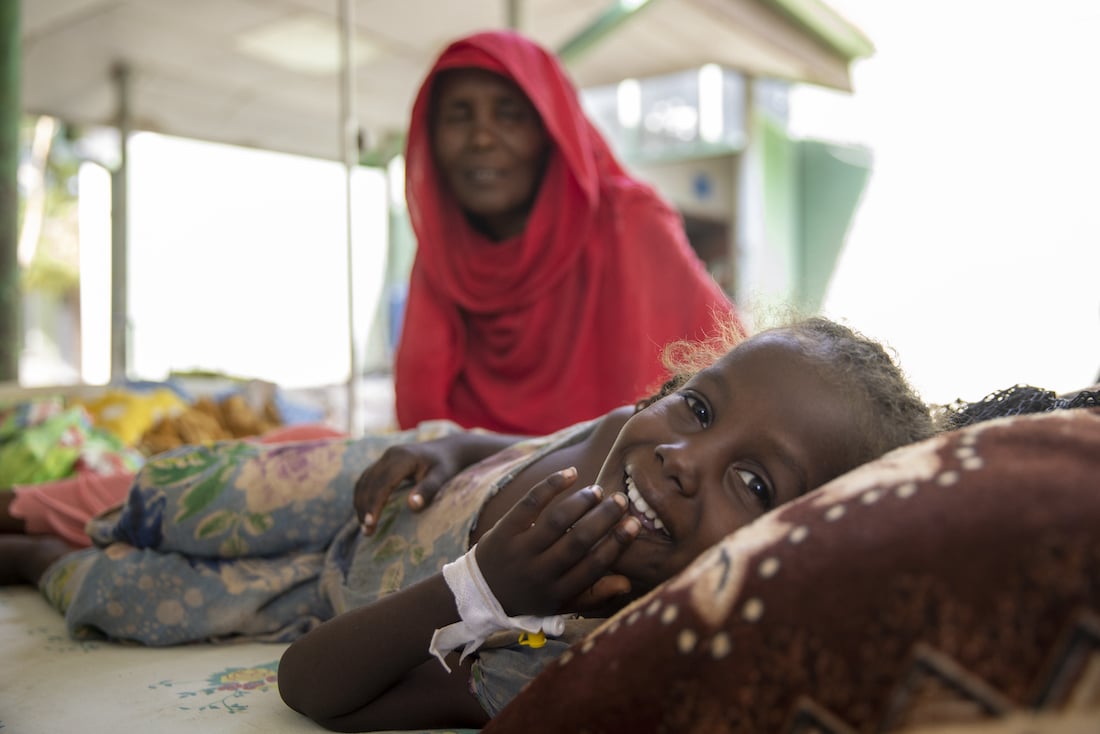
Rosanne Kahuure

Economic Strengthening and Public Private Partnership Officer, Namibia
Why did you decide to work in the humanitarian sector?
Having lived in Namibia all my life, I have seen the inequities that vulnerable populations face, and I realize that change comes from committed, qualified people taking on roles that can lead to sustainable change.
I am also deeply patriotic, and I see the vast potential Namibia has through its resources and youthful population. I know that a strong and stable economy comes from a skilled and healthy population, and I feel passionate about working toward realizing my country’s potential.
What are some of the greatest challenges facing women in Namibia right now?
Namibia faces significant challenges with gender-based violence. Violent rape and femicide are common crimes and cultural norms, and because of insufficient support available to survivors, cases often go unreported or unsolved.
There is a sad saying in reference to violence against women: “they only care about us when we have been killed.” This speaks to the dangerous pyramid of sexual violence, where the lower tiers of the pyramid, which outline some of the more subtle elements of rape culture, are often ignored, making it difficult to address and change the situation.
What would equity look like for women in Namibia?
Equity for women in Namibia would look like a comprehensive, coordinated approach where men and boys are included in the services designed to empower women—not alienated from them. It would look like funding availability, organizations working together and political will, as well as an acknowledgment that any development that doesn’t consider indicators that focus directly on gender will not be sustainable or equal.
How is Project HOPE making a difference?
We deliver evidence-based and relevant services to meet the needs of vulnerable, hard-to-reach populations in a culturally sensitive manner, and are major players in Namibia’s success in controlling complicated pandemics such as HIV. We have created strong partnerships with other key players and have a healthy relationship with community and government stakeholders, which is vital for the successful implementation of our work.
I work for the Project HOPE Namibia DREAMS team, an HIV prevention program aimed at adolescent girls and young women, who are the most at risk of contracting HIV. Part of the reason for the disproportionate risk they face is their economic dependence on men. My work involves helping young women develop the skills and confidence needed to become economically independent and stable in order to protect themselves from the situations that render them vulnerable to HIV.
Equity for women in Namibia would look like a comprehensive, coordinated approach where men and boys are included in the services designed to empower women—not alienated from them.
Nadiia Suranova
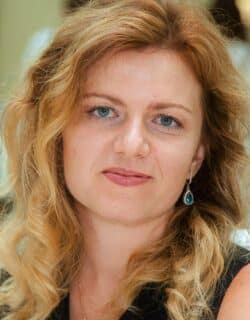
Compliance Officer, Ukraine
Why did you decide to work in the humanitarian sector?
Honestly, it was people who inspired me to do humanitarian work. All of my life I have had a strong desire to be useful to people, to help and support them. When the full-scale war started, I realized that my professional skills and knowledge could be useful in the humanitarian sphere—that I could contribute to helping others in such a difficult time.
What are some of the greatest challenges facing women in Ukraine right now?
We are all different people, with different views and perceptions of reality. In my opinion, women in Ukraine are challenged with allowing themselves to live normal lives—as much as it is possible in our current reality—without feeling guilty for being alive, or for not relocating with their children to a safer place, for example. They’re challenged with finding a balance between helping others or helping themselves, and enduring this period with dignity without losing themselves.
What would equity look like for women in Ukraine?
In Ukraine, women and men have equal rights. There is still work to be done, of course, but this is mostly true. This is especially acute now, when women have taken over some of the men’s functions while brave Ukrainian men are defending our land.
How is Project HOPE making a difference?
My colleagues at Project HOPE are highly-skilled professionals deeply committed to their work and helping people in need. Through the provision of essential supplies such as hygiene kits and medicines, as well as psychological support from qualified professionals, Project HOPE is giving individuals hope for a better future and the support they urgently require. By offering assistance and showing that there is someone to turn to during difficult times, Project HOPE is helping people across Ukraine feel less isolated and more connected to their communities.
Agustina Piñon
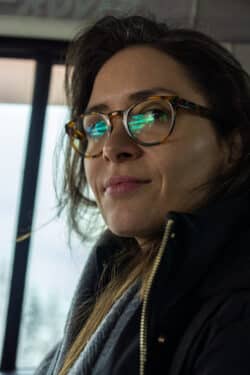
Mental Health and Psychosocial Support Specialist, Ukraine
Why did you decide to work in the humanitarian sector?
I started working in the humanitarian sector in 2017. Before that, I had worked on a variety of social issues in my home country, Argentina—mostly with children and on the rights of women and girls. Over time I was able to see the importance of this kind of personal and professional experience, which led me to take on new roles in different contexts, where my background and skills could have a genuine, positive impact on other communities.
What are some of the greatest challenges facing women in Ukraine right now?
The challenges faced by Ukrainian women and girls cannot be understated. From a heightened risk of trafficking and gender-based violence to loss of crucial livelihoods and rising poverty levels, the war poses unique risks to them and disproportionately impacts them. All too often they represent the core of households, sustaining family dynamics both economically and emotionally. Women are expected to be caretakers as well as linchpins of emotional support for people around them.
In newly de-occupied territories, these gender dynamics are even worse. Of course, every individual, regardless of their gender, has been deeply affected by this war, but the unique needs of women and girls must always be a central component of the work organizations do.
What would equity look like for women in Ukraine?
One of the core considerations to improve overall equity in Ukraine must be to encourage the general population—as well as those in positions of power—to centralize the role of women and people with diverse identities.
Improving women’s positions in decision-making processes and institutions will be key for not just better gender equity in Ukraine, but for a better future for the country as a whole. By addressing issues ranging from GBV and trafficking to economic empowerment and inclusive public policy, ongoing processes to improve gender equity can be built upon and strengthened to address the long-term consequences of the war.
How is Project HOPE making a difference?
Project HOPE is conducting gender-based interventions on several levels, strengthening the capacity of health providers, providing direct interventions at Project HOPE facilities, and building networks and relationships among various stakeholders.
I’ve been working in Ukraine for the last eight months, traveling among the various Project HOPE hubs to oversee our mental health, psychosocial support, and GBV-related activities. We’re training medical and non-medical staff to address the needs of GBV survivors, and we’re also creating safe spaces for women and girls affected by the war. These are spaces where they can find various forms of essential support and resources, safely build community among themselves, and find respite through various creative and stress relief activities.
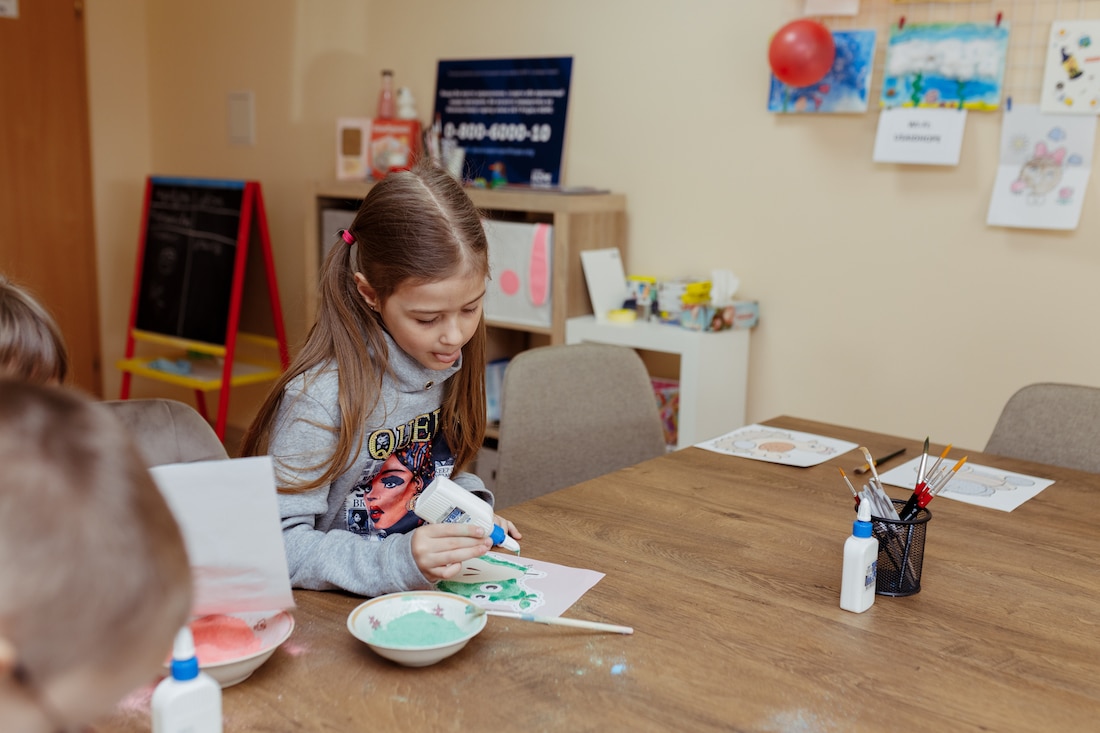
Graziella Piga
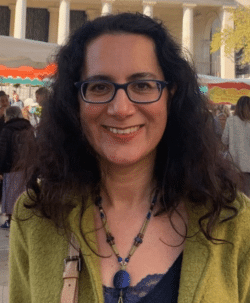
Regional Gender Equality and Social Inclusion Director, Poland
Why did you decide to work in the humanitarian sector?
I am originally from Sardinia, Italy, and I have been working in international development and humanitarian work for over 20 years, with a specific focus on gender equality and women’s rights. My passion is universal gender equality and I’m committed to the implementation of policies and programs that contribute to promoting and achieving women’s equal rights.
Women’s concerns and rights have been at the margin of mainstream programs for too long and it is so easy to do harm while applying a gender-blind response. I try to apply a gender lens to everything I do and I am keen in supporting others to do the same.
What are some of the greatest challenges facing women in Eastern Europe right now?
Women in Ukraine have benefitted from a rather advanced legal framework and progress had been made in the past decade to promote equal rights for men and women. The invasion has taken away some of these gains and has shifted the priority toward more gender-neutral needs.
The gendered aspect of the crisis is unprecedented: never have we had women and children being massively displaced while men could not leave. The crisis has attracted the attention of many well-intentioned volunteers, but also many human traffickers and exploiters who have seen an opportunity to abuse women refugees’ positions of vulnerability.
Many well-educated women have found themselves without jobs and without the support network and the social services they could count on before the invasion. In the refugee countries where Project HOPE works, refugee women have had to adjust to the new context, while the lack of language skills and recognition of qualifications has often meant that they are recruited into lower positions that are not in line with their qualifications.
Women’s workloads have also increased exponentially. Many women now have the burden of being the breadwinners and the sole carers for children and the elderly. Those with fewer resources have found themselves in collective accommodations, at relatives’ houses, or in host accommodations with strangers. This increases their vulnerability to external abuse, exploitation, and domestic violence due to increased stress, tension, and lack of financial resources. Women refugees have also seen their access to reproductive health services curtailed.
Another challenge relates to the position of women’s rights organizations. They quickly organized themselves to support the local population during the emergency period, but little money has been allocated to support these organizations so that they may continue their work to ensure that women’s rights are not left behind in the process of recovery and reconstruction.
What would equity look like for women in Ukraine?
Equity would look like women taking part in the decision-making process at all levels during the relief and recovery process. Women taking part in the development and implementation of protection and reconstruction programs. Women having equal access to opportunities and equal salaries for the same job. Women being free from harassment, gender-based discrimination, and violence.
How is Project HOPE making a difference?
Project HOPE is working with partners in Ukraine, Moldova, Poland, and Romania to provide free health care, psychosocial support, and other services to women and girl refugees and internally displaced populations. For instance, in Poland, we partner with a women-led organization that provides psychosocial support to women and men and also specializes in GBV case management. In Moldova, one of our partners works on social cohesion and also provides training on GBV to various stakeholders involved in the response. In Ukraine, we have dedicated safe spaces for women and girls where they not only receive mental health and psychosocial service support, but are also offered yoga and English classes.
I’m responsible for mainstreaming gender equality and social inclusion in all the endeavors of our regional response. In all of our work, we apply the Inter-Agency Standing Committee (IASC) humanitarian standards and its Gender Equality and Empowerment of Women and Girls Policy, and we’re training partners and staff on these issues to ensure there is an understanding of gender equality and women’s rights and how to promote and support it.


